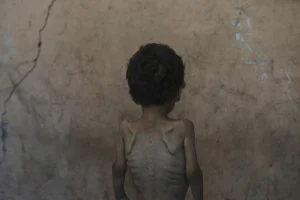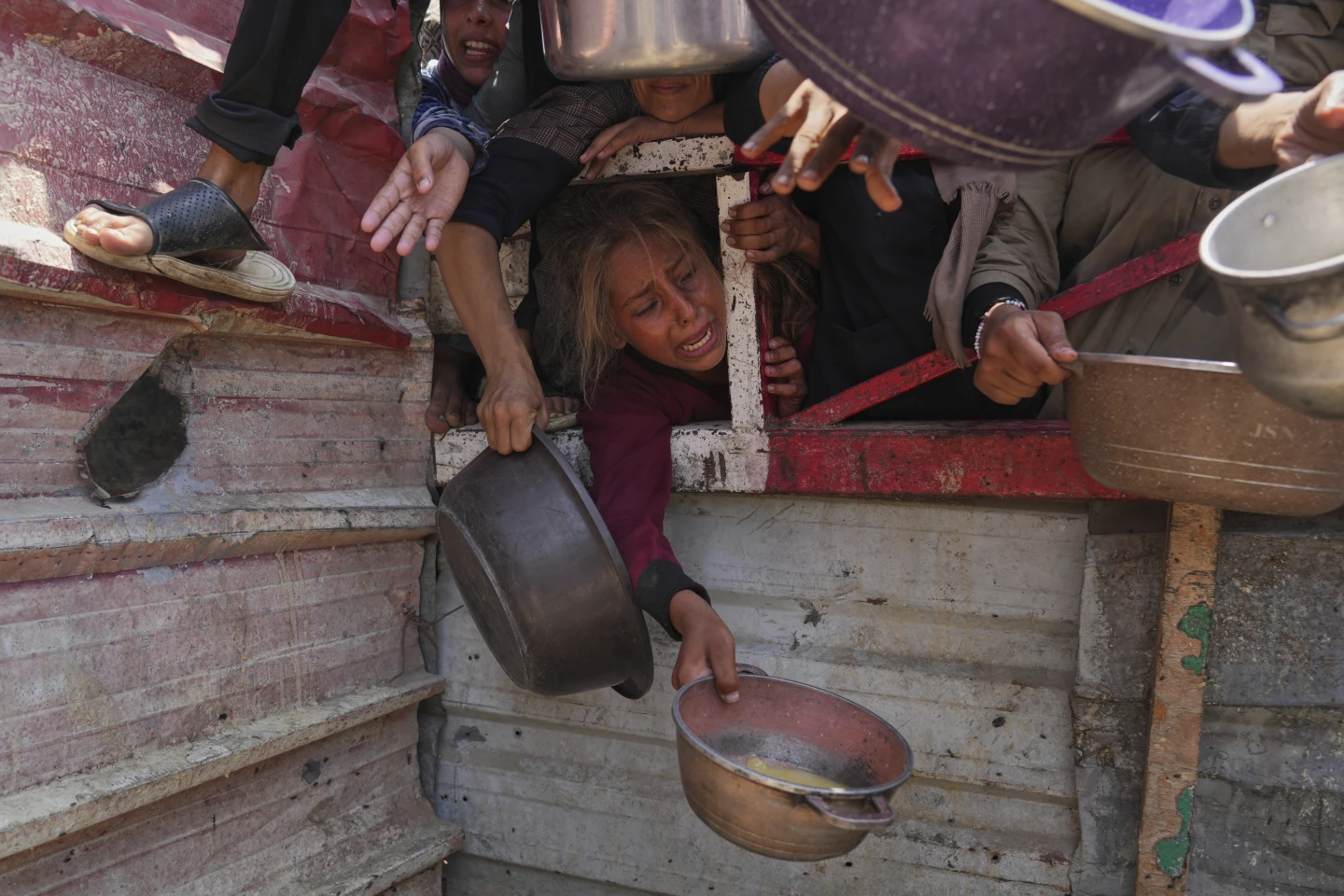Israel’s military announced that airdrops of aid would begin Saturday night in Gaza, and humanitarian corridors will be established for United Nations convoys, after increasing accounts of starvation-related deaths.
The statement late Saturday followed months of experts’ warnings of famine amid Israeli restrictions on aid. International criticism, including by close allies, has grown as several hundred Palestinians have been killed in recent weeks while trying to reach food distribution sites.
The military statement did not say where the airdrops or humanitarian corridors would be. It also said the military is prepared to implement humanitarian pauses in densely populated areas. Israel’s foreign ministry said late Saturday the humanitarian pauses would start Sunday in “civilian centers” along with humanitarian corridors.
Israeli airstrikes and gunshots killed at least 53 people in Gaza overnight and into Saturday, most of them shot dead while seeking aid, according to Palestinian health officials and the local ambulance service.
The military “emphasises that combat operations have not ceased” in Gaza against Hamas, and it asserted there is “no starvation” in the territory, where most of the population of over 2 million has been displaced into a shrinking area with little infrastructure. The majority of people rely on aid.
Later, the Israeli military released video footage of what it said were airdrops in coordination with international organisations and led by COGAT, the Israeli defense agency in charge of aid coordination in the Palestinian territory. It said the drop included seven packages of aid containing flour, sugar and canned food.
Witness accounts from Gaza have been grim. Some health workers are so weakened by hunger that they put themselves on IV drips to keep treating the badly malnourished. Parents have shown their limp and emaciated children. Wounded men have described desperate dashes for aid under gunfire.
The military statement said airdrops would be conducted in coordination with international aid organisations. It was not clear where they would be carried out. And it was not clear what role the recently created and Israeli-backed Gaza Humanitarian Foundation — meant as an alternate to the UN aid system — might play. GHF chair Johnnie Moore in a statement said the group stood ready to assist.
Deadly Israeli gunfire was reported twice close to the Zikim crossing with Israel in the north. In the first incident, at least a dozen people waiting for aid trucks were killed, said staff at Shifa hospital, where bodies were taken. Israel’s military said it fired warning shots to distance a crowd “in response to an immediate threat.”
On Saturday evening, Israeli forces killed at least 11 people and wounded 120 others when they fired toward crowds who tried to get food from an entering UN convoy, said Dr. Mohamed Abu Selmiyah, director of Shifa hospital.
“We are expecting the numbers to surge in the next few hours,” he said.
In the southern city of Khan Younis, Israeli forces shot dead at least nine people trying to get aid entering through the Morag corridor, according to the hospital’s morgue records. There was no immediate military comment.
Elsewhere, those killed in strikes included four people in an apartment building in Gaza City and at least eight, including four children, in the crowded tent camp of Muwasi in Khan Younis, hospitals said.
The airdrops were requested by neighboring Jordan, and a Jordanian official said they mainly will drop food and milk formula. The United Arab Emirates said airdrops would start “immediately.” Britain said it plans to work with partners to airdrop aid and evacuate children requiring medical assistance.

But the head of the United Nations agency for Palestinian refugees, Philippe Lazzarini, warned that airdrops are “expensive, inefficient and can even kill starving civilians” and will not reverse the increasing starvation or prevent aid diversion.
While Israel’s army has said it allows aid into the enclave with no limit on the trucks that can enter, the UN says it is hampered by military restrictions on its movements and criminal looting. The police had provided security for aid delivery, but it has been unable to operate after being targeted by airstrikes.
Israel faces growing international pressure. More than two dozen Western-aligned countries and over 100 charity and human rights groups have called for an end to the war, harshly criticising Israel’s blockade and a new aid delivery model it has rolled out.
More than 1,000 Palestinians have been killed by Israeli forces since May while trying to get food, mostly near the new aid sites run by the GHF, an American contractor, the UN human rights office says.
The charities and rights groups said their own staff struggled to get enough food.
Inside Gaza, children with no preexisting conditions have begun to starve to death.
“We only want enough food to end our hunger,” said Wael Shaaban at a charity kitchen in Gaza City as he tried to feed his family of six.
More than 59,700 Palestinians have been killed during the war, according to Gaza’s Health Ministry. The UN and other international organisations see it as the most reliable source of data on casualties.


